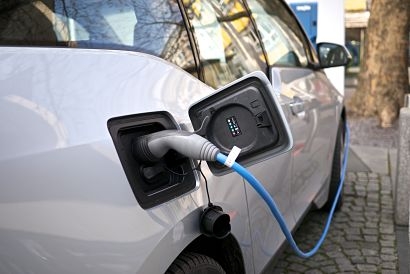
Though significant progress has been made to decarbonise the country’s electricity, the same level of progress is needed to decarbonise transport. Meeting important UK government policy targets by 2030, will require significantly more than 4 million plug-in vehicles to be on the road. The ‘Smarter Charging: A UK Transition to Low Carbon Vehicles’ insight report examines some of the issues facing the mass market transition from fossil fuel to low carbon miles.
This latest report was prompted by the completion of the ETI’s Consumers, Vehicles and Energy Integration (CVEI) project. As part of the two year project, Charging Trials were commissioned to collect detailed journey and charging data from 127 battery electric vehicles (BEVs) and 121 plug-in hybrid electric vehicles (PHEVs). The research shows that plug-in vehicles are attractive to the majority of UK drivers, provided they cost the same over a 4-year period as current cars, have sufficient range and recharging is easy and cost-effective.
In terms of decarbonisation, BEVs and PHEVs are complementary, not competitive and the preference is less important to decarbonisation and charging than the proportion of miles actually travelled using electricity, and the greenhouse gas emissions produced by generating the additional electricity. Households that drive a lot of miles on electricity, and charge mostly on electricity from low carbon supplies, will be critical to meeting UK climate targets.
The report surmises that now is the time to lay the foundations for extensive access to vehicle charging, and effective, customer-focused charging management – or smart charging – to prevent charging becoming a barrier to mass-market uptake.
Unmanaged charging by mass-market drivers peaks at the same time as current electricity demand, with potentially serious consequences for UK infrastructure. Charging access through market design and shaping incentives for consumers are needed to achieve the most efficient use of existing resources, and mass market consumers appear receptive to this.
“Early uptake of electric vehicles and the provision of public charging points have been effective, but deeper penetration of low carbon transport is needed quickly if the UK is to meet its targets” said Jonathan Wills, Chief Executive Officer, ETI. “Through our CVEI project we wanted to understand how the bulk of consumers, rather than early adopters and enthusiasts, would use the technology. How might the market structures and energy supply systems need to change in order to encourage the wider adoption of plug-in vehicles and their integration into the energy system? We believe that right now, the UK stands at the end of the first phase of vehicle electrification, with evidence from the progress already made pointing towards the challenges to be addressed in the next stage. The UK needs a strategy to provide enough capacity, coupled with enough intelligence to meet drivers’ needs, while at the same time avoiding risks to the electricity infrastructure or the addition of high-carbon peak generating capacity”.
Mr Wills added that understanding driving patterns and needs and providing appropriate infrastructure, market designs and incentives will need national policies and standards to support local plans and investments and that the ETI hopes that the recommendations posed in the report will support the interpretation of real world data and especially its use for planning by businesses and policy makers.
The ‘Smarter Charging: A UK Transition to Low Carbon Vehicles’ summary and full reports are available to download through the ETI Knowledge Zone. In addition, the CVEI project has generated models, data and analysis based on vehicle uptake and charging consumer trials with mass-market consumers. The key reports from CVEI, are available in the ETI Knowledge Zone and the tools and data can be accessed through the Energy Systems Catapult.
For additional information:

